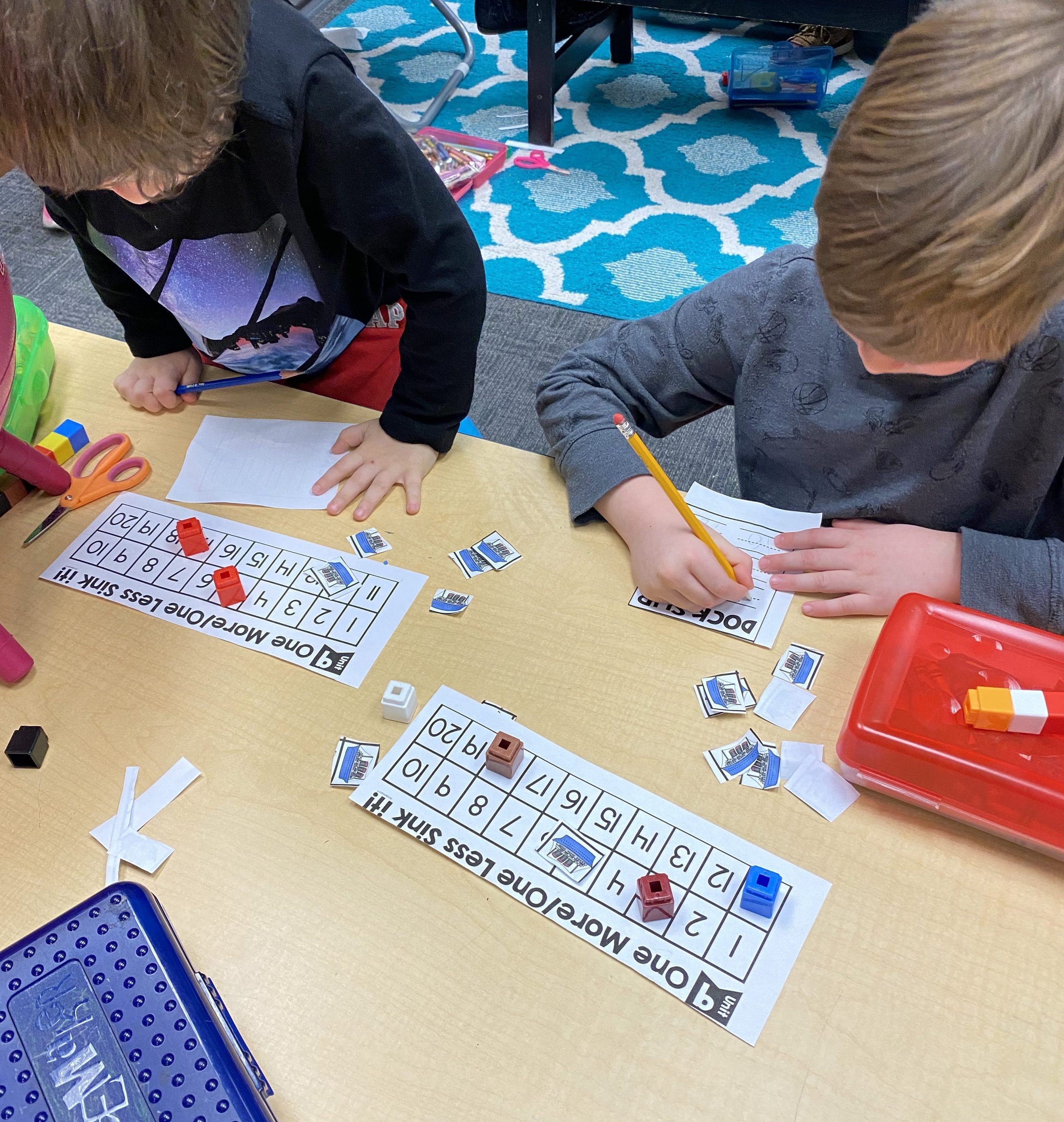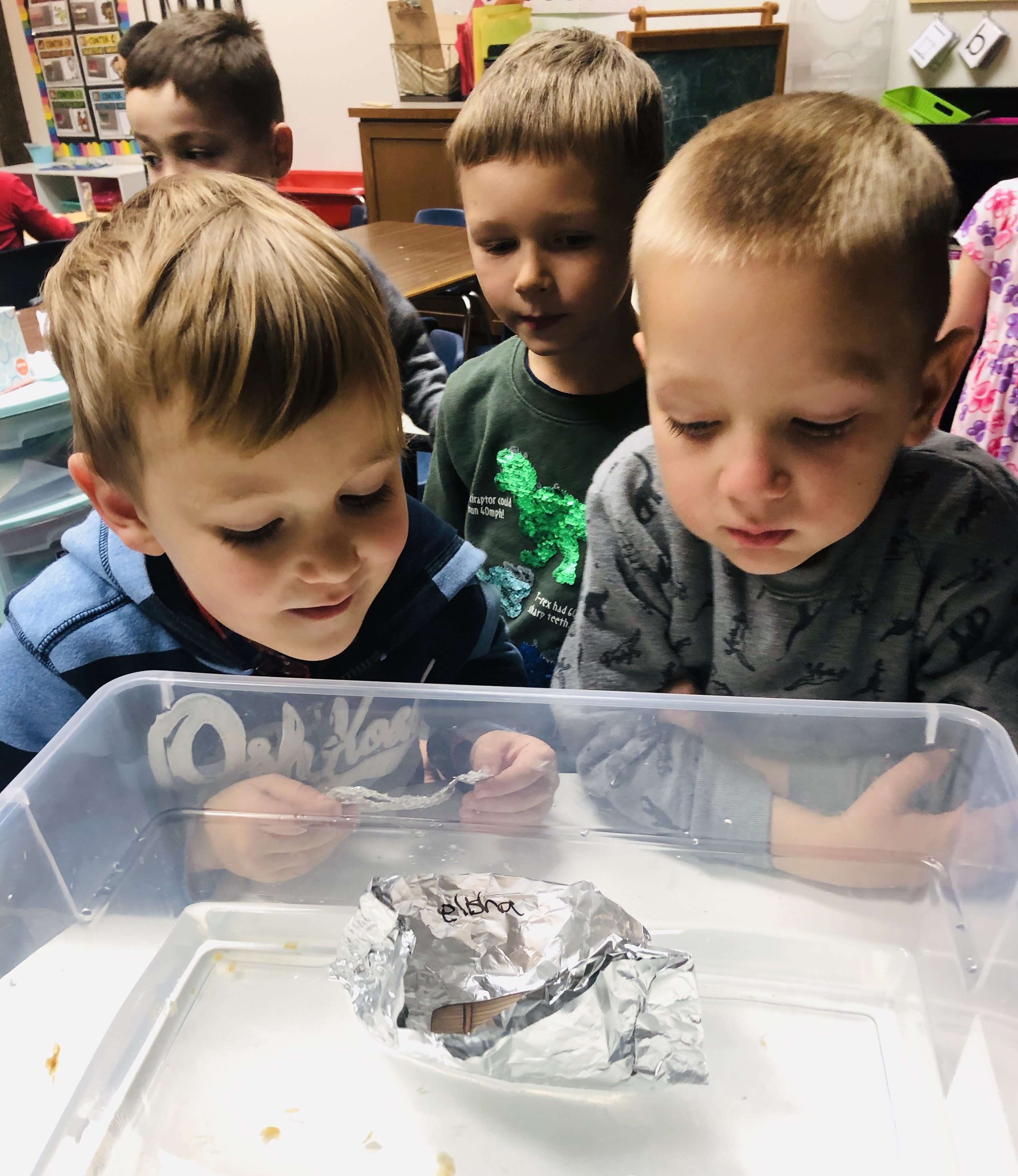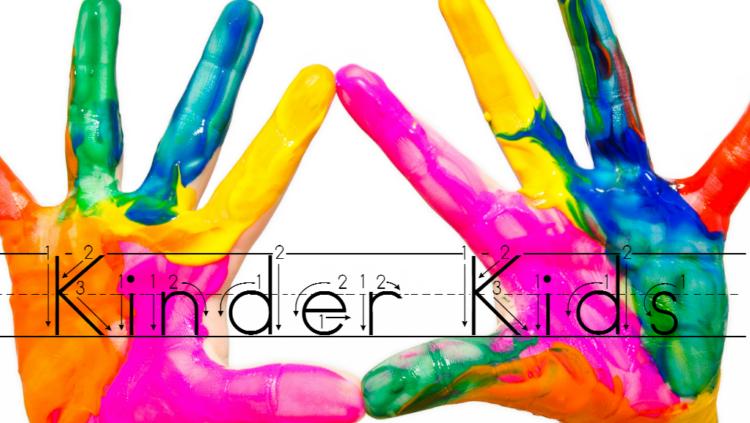Kindergarten is an exciting time of exploration for your child. As your child’s motor coordination increases, so too will their sense of independence, self-reliance, and self-confidence. As the year progresses, your child will be expected to complete assignments with less outside help, accept more responsibilities, and follow rules more closely.
Our great Father is an amazing Creator and He uniquely crafts each one of His children, filling each with special gifts and abilities. Because of the Lord’s awesome crafting skills, we get the opportunity to work alongside each one of His unique children and help prepare them for all that the Lord has planned in their lives as well as fill them with his love, grace and wisdom. What a remarkable job and gift we have been blessed with! With that being said, parents and fami
lies also get to take part in this journey (a large part) and we greatly value that partnership.
Skills Suggested before the Beginning of Kindergarten:
You may want to review this list and see if there is anything else you will need to teach your child before those first days of school.
- Identify some letters of the alphabet
- Grip a pencil, crayon, or marker correctly (with the thumb and forefinger supporting the tip)
- Use scissors, glue, paint, and other art materials with relative ease
- Write his/her first name
- Count to 10
- Bounce a ball
- Classify objects according to their size, shape, and quantity
- Speak using complete sentences
- Recognize some common sight words, like “stop”
- Identify rhyming words
- Repeat his/her full name
- Play independently or focus on one activity with a friend for up to ten minutes
- Manage bathroom needs (mandatory)
- Can dress themselves
- Can follow directions
- Can clean up after themselves
- Can listen to a story without interrupting
- Can separate from parents for learning time
Don’t panic if your child hasn’t mastered everything on the list — they will learn a lot in kindergarten! What’s helpful is to wean them from relying on you to do things they could do themselves, such as zipping up a jacket or tying their shoes. Give them the chance to show you what they can do for themselves — you might be in for a few surprises!
 Our Full Day Schedule Includes the following:
Our Full Day Schedule Includes the following:
8:30 School Officially Starts-Writing/Spelling Practice
Curriculum
- Tara West KinderMath, KinderLiteracy, KinderSTEM, KinderSocialStudies, Writing & Themed Centers
- Deanna Jump Bible
- Stars West Phonics & Reading
Also used:
- Hooked on Phonics
- LeapFrog Letter Factory
- ABC Mouse
- Supplemental materials are also used with some of these curricula, to help keep everything hands on. In addition, we hold large group Chapel on Tuesdays and Thursdays.
- All students also participate in a World Language class (Pre-K & Kindergarten have a read aloud time with the language) and music class.
Garden Fun & Learning
- As part of the yearly fun and learning, students also participate in the school garden, located in the school atrium. Every class participates in garden clean up, planting seeds, watering and harvesting. Each class has their own planter/planting area. The kids love the garden and learn so much from it!
- Your job is still vital; it has only just begun. Your child’s teacher wants to be your partner. Keep them informed about what goes on at home that might affect your child’s behavior or academic performance. Share with them how what they do at school affects your child at home.
- Kindergarten is a place where students build skills and acquire information that sets the tone for each and every grade to follow. We very much encourage students to be present for as much school as possible. If students miss school often, throughout the year, they will struggle and may not be able to achieve all that they could otherwise.
At home:
• Talk about what interests them.
• Encourage him/her to be curious and ask questions.
• Point out letters and numbers when you see them in books and around town.
• Support him/her in solving everyday problems.
• Ask how their day was. - We have a very hands on program and don’t believe in having children sit in their seats all day long. There is much more learning that occurs when children are able to gain first hand knowledge with hands on activities. With that being said, the more your child learns to achieve some sort of self-control, the more successful they will be in school. Children need practice in deciding how and when to express their feelings and needs, and when and if to act on impulses. Help them develop and practice these skills at home.
- Make yourself known. We love and greatly value family communication. Make appointments to talk to your student’s teacher. Read the newsletters and attend conferences. Teachers are busy during the day teaching, but will get back to you after the school day is over. Provide a phone number to text and/or email to communicate.
- Your child needs many opportunities for play outside of school. Play is the way in which they learn about themselves and the people and world around them. Playing both alone and in small groups helps facilitate learning and allows your child to practice skills and concepts.
- Reading to your child at least once a day, is important. Books are the gateway to building vocabulary, learning about print, and developing listening and early literacy skills. When you read, talk about the book. Discuss the characters and setting, make predictions, and create new endings. You can point out letters and words in the text, and encourage them to recognize rhyming sounds and words and to identify beginning and ending sounds. Above all, allow them to enjoy reading. If a child is pushed too much and they aren’t ready, they will often retreat and learn to dislike it.
- Writing exploration at home is very helpful. Your child needs to have opportunities to use pencils, crayons, markers, colored pencils, and other writing instruments as they attempt to express themselves in written form. Children begin with scribbles and lines, then move on to letters and their name and then to words and sentences.
- We very much value home time outside of the school day and believe there is so much more your child can be learning while spending that time with their family and friends. For this reason, we do not assign very much (if any) homework. We are happy to accommodate families that ask for extra work, but it is not something we feel should be taking up the child’s entire day. If the child does have homework, it is an opportunity for talking, sharing, and listening. Teachers give homework to extend the learning of the classroom. It is a chance for you to find out what your child is studying and how well they are grasping the skills and concepts being taught at school.
- We do not believe in sitting students in front of the television. We heavily limit screen time. We feel the time spent with these electronic devices could otherwise be spent talking, reading, or actively learning through play.
- First-hand experiences are another teacher for your child. Take your child to museums, the zoo, the aquarium, the library, parks, arts performances, and geographic locations such as the mountains, beach, forests, and deserts. Students will grasp concepts and skills better if they have experiences with the real thing.
Summer Extension/Programs

